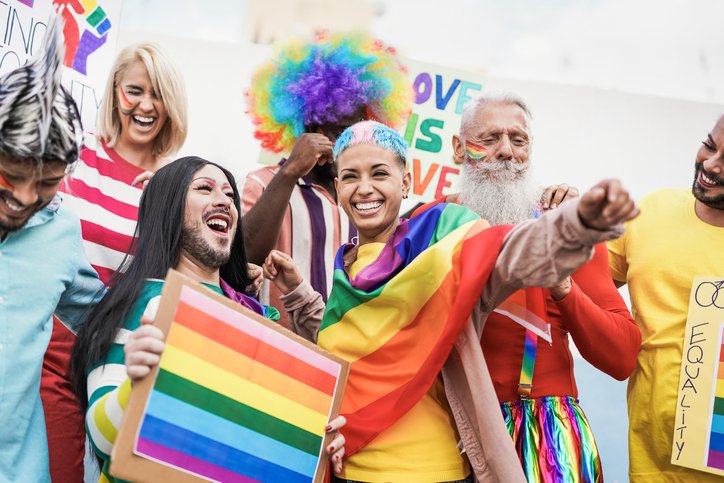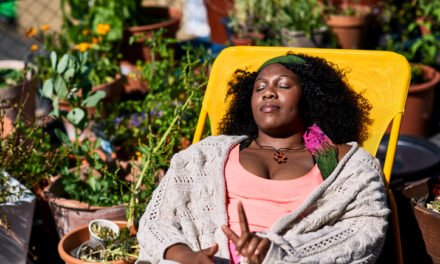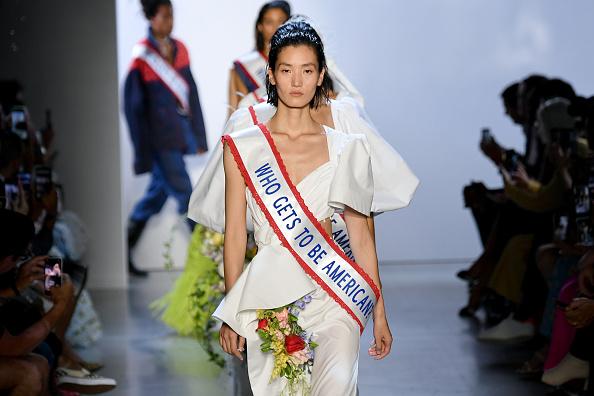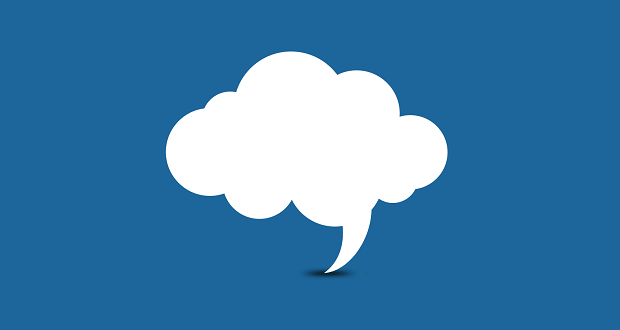
Please be aware: This post contains mentions of gun violence in schools and community spaces, as well as physical, sexual, and systemic violence toward members of the queer community.
A former colleague of mine, a trans man who came of age in the Midwest in the 1980s, used to tell me I smiled a lot.
As a young queer person fresh out of college, I didn’t think much of this until I saw a musical theater production that takes viewers into the scene of the Stonewall Uprising of 1969, when police raided the Stonewall Inn, a gay bar, physically and sexually assaulting innocent people going about their nights. This time, Black and Brown patrons, activists, and performers fought back against the violence, marking a critical turning point in the gay liberation movement. As a 22-year-old processing these events fully for the first time, I sobbed in the dark theater. It made so real something I’d learned about in passing, and some of what my colleague himself endured — if not at the hands of law enforcement in decades following, those of peers.
Another time I was overcome with emotion surrounding tragedy in queer history was watching a documentary filmed by a gay couple, both filmmakers dying of AIDS before viable treatment was made accessible (due to an appalling lack of action by the Reagan administration). The movie came out the year I was born, the same year President Clinton signed the “Don’t Ask, Don’t Tell” policy into law.
I know I will never fully understand the lived experience of these tragedies that preceded my lifetime, and I am grateful for the times I have been challenged to truly sit in recognition of and empathy with the lived experiences of queer and trans elders across many intersections and identities. A queer millennial comic I admire mused on a podcast: “I never experience homophobia — or barely.” The Midwest and the world at large have changed a lot since the 1980s. While I can point to several exceptions, generally, I am fortunate enough to know what she means.
It doesn’t mean I’m not afraid.
I’ll never forget the morning I awoke to news of the mass shooting at the Pulse Nightclub, where 49 people we murdered and 53 more wounded. While it’s normal for there to be more tragedies in the news than anyone can fully process, this one hit me hard, and I burst involuntarily into tears, as I had in the theater. This time, it wasn’t history. These could have been my peers, and it was one of the moments I truly questioned my own safety in queer spaces I’d occupied with friends and loved ones.
The ways that dehumanization of queer and trans people continues to plague rhetoric and current events routinely finds its way to “safer” spaces. For weeks in 2019, a friend who was a drag performer was harassed in his home bar with threatening messages written on cash tips. He grew increasingly fearful for his safety before the offender was identified and asked not to return. (I worried he would anyway.)
We are approaching June, designated as Pride Month. Pride Month hasn’t always been something that resonated with me, especially given the relative safety I’ve experienced. Pride is something many people have complex relationships with for a variety of valid reasons. I am not proud of “rainbow capitalism” that flourishes throughout the month of June. I am certainly not proud of pinkwashing that abounds in corporate spaces and international conversations about human rights that erroneously situate and value my humanity above that of others.
I have seen walls constructed, coalitions hampered, and harm caused many times within the queer community. White supremacy, trans-misogyny, and punitive cultures remain alive and well in many queer spaces.
AND … today, it strikes me that I experience Pride in the way queer friends, family, and strangers often do show up and care for one another.
It will never be lost on me that an entire armed police force failed to enter the scene of a school shooting for almost an hour as staff and children were murdered. Less than six months later, queer bartenders and patrons going about their nights risked and sacrificed their lives to subdue a heavily armed shooter in under two minutes, preventing an already horrific tragedy from becoming far worse. Club Q was a local gay bar I’d never been to, but easily could have, in just over an hour’s drive from a past home.
I do not trust that my government will take care of me. I believe queer community will.
When my elder trans co-worker asked me enthusiastically if I would be attending the local Pride Fest that weekend, I muttered something about not liking crowds or prior commitments. He balked at my evident hesitation. “I would never miss it,” he told me.
***
Today, in a “moral panic” driven heavily by an approaching election and fear of differences, a horrifying amount of anti-queer legislation has been introduced and enacted, books highlighting important and overdue representation have been banned, and a childhood-hero-to-many-turned-harasser has stooped to targeting individual trans women with dehumanizing rhetoric, in addition to the trans community as a whole. There is quite a lot to fear and grieve.
This year, climbing out of some grief that the last several years brought to the forefront for me, I challenged myself to create something beautiful in the midst of a frightening world. I entered a local drag pageant in my town and was honored to accept the title of crowned king. This month, I’ll be participating in a Pride parade representing my community, surrounded by rainbows that mean different things to different people, and wearing a costume that feels authentic to who I am. In these spaces and moments, I will always think of my friend and mentor Simon, the drag king who faced targeted harassment, even in the relative safety of his home bar. While he is no longer with us, he will always embody Pride for me: caring for his community members at every intersection of marginalization, loving hard and fighting for justice, creating beautiful things and joy along the way — in spite of pressures that would have him silenced.


















